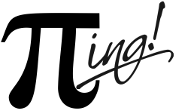 |
PING
0.9
Statistical data handling and processing in production environment
|
 |
PING
0.9
Statistical data handling and processing in production environment
|
Transform an unformatted list of items (e.g. considered as char) into a list of comma-separated and/or quote-enhanced items.
list : a list of blank separated items/char;mark : (option) character/string used to quote the items in the output list; default: mark is the double quote "; any type of character can be used, though the macros %str/%quote should be employed to pass it in practice (see examples and notes below); note also the particular case where it is passed as mark=_EMPTY_ then it is set to mark=%quote();sep : (option) character/string separator in input list; default: %quote( ), i.e. sep is blank;rep : (option) character/string used to replace the separator in the output list; default: %quote(,), i.e. the output list is comma separated; note that rep=_BLANK_ can also be passed so as to set rep=%quote( ).clist : output formatted list of items, e.g., comma-separated items/char in between quotes..
With the default settings mark=%str(%"), sep=%quote( ), rep=%quote(,), the following command:
returns: clist="DE","AT","BE","NL","UK","SE", while:
returns: clist=DE,AT,BE,NL,UK,SE, and:
returns: clist=*DE* *AT* *BE* *NL* *UK* *SE*.
Finally, note also the following use:
with returns per_var=AGE*RB090*HT1*QITILE.
Run macro %_example_list_quote for more examples.
%quote or %str when the marks/separators are special characters (since it takes effect during macro compilation/execution).mark, rep and sep, this is roughly equivalent to running:%clist_unquote, %sql_list, TRANWRD, COMPBL, COMPRESS, BQUOTE.